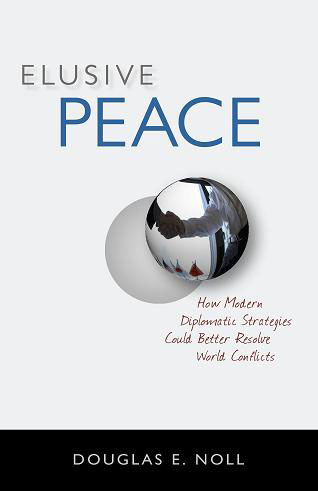Excerpt from Chapter 9 - Mediating Justice and Accountability
On Monday July 12, 2010, the International Criminal Court added charges of genocide to the list of crimes Sudanese leader Omar al-Bashir had been accused of committing. Before the ruling, al-Bashir had been charged with seven counts of war crimes and crimes against humanity for his role in orchestrating and extermination campaign against the African tribes of the Fur, Masaalit, and Zaghawa living in Sudan’s Western region of Darfur. Human rights groups hailed the decision, saying that it sent a strong rejection of impunity to Sudanese leaders.
A spokesman for the U.S. National Security Council, Mike Hammer, said, “The United States strongly supports international efforts to bring those responsible for genocide and war crimes in Darfur to justice and believes that there cannot be a lasting peace in Darfur without accountability.” Two days later, however, Scott Gration, the U.S. Special Envoy to Sudan, expressed concerns about how the new indictment would affect his efforts to secure the cooperation of al Bashir in bringing peace to Sudan. He said, “The decision by the ICC to accuse Sudanese president Omer Al-Bashir of genocide will make my mission more difficult and challenging especially if we realize that resolving the crisis in Darfur and South, issues of oil and combating terrorism at a 100%, we need Bashir. Also the issues of citizenship and referendum, the North holds a lot of influence so this is really tough. How will I carry out my duties in this environment?”
General Gration’s question frames the problem perfectly for international mediators. On the one hand, the international community wants to hold war crimes criminals accountable through an international retributive justice system, yet on the other hand, the cooperation of those criminals is often necessary to secure peace. How can these two apparently inconsistent goals be managed in an international peace process? There is no magic bullet that solves this problem. What is required for peace and accountability is a deeper understanding of justice. The conflict between peace and accountability is really a conflict around the different meanings of justice. Understanding justice is therefore critical to reconciling peace with accountability.

